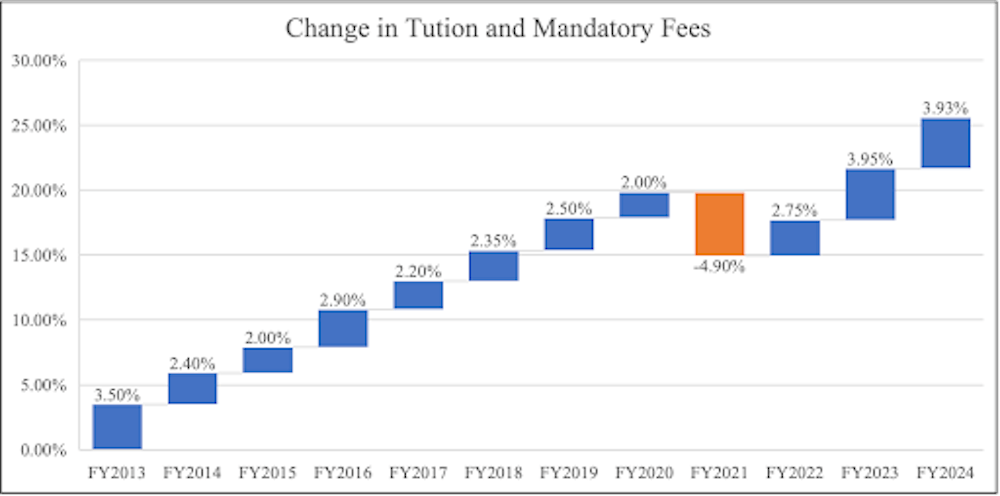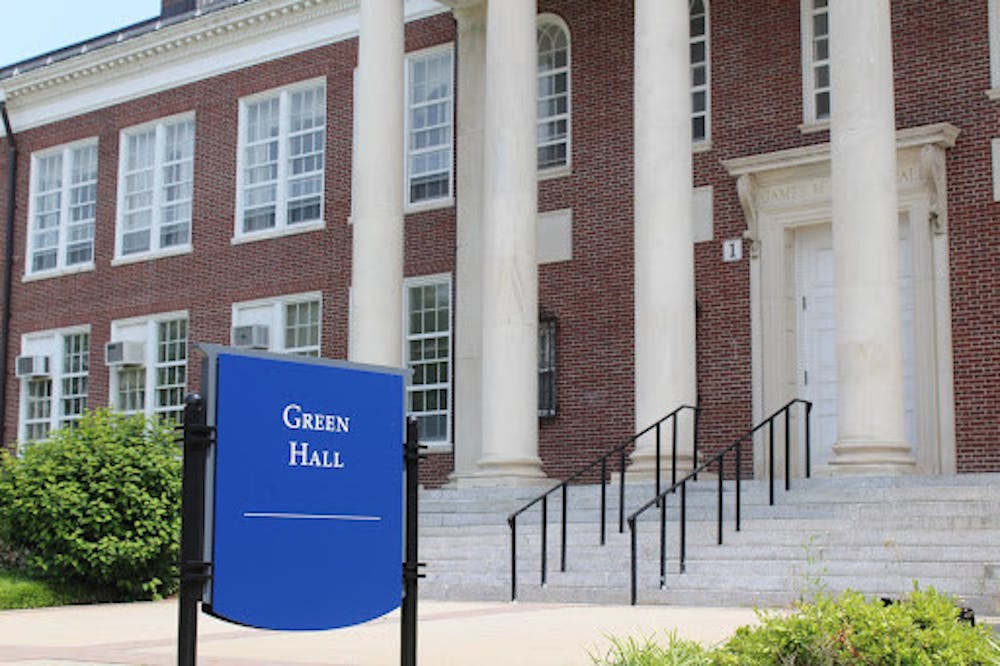By Mike Sherr
Editor-in-Chief
On June 27, the Board of Trustees met in the Brower Student Center with no Zoom option available. Amongst a long list of business discussed, the group voted to increase student tuition as well as room and board fees.
According to the Public Meeting Agenda, the Board of Trustees raised tuition for full-time, in-state undergraduate students by $566, a 4% increase compared to FY 2023. Combined with mandatory fees the cost to attend the College increased by $706, for a total cost of $18,684 for the year.
Part-time students and out-of-state students will experience the same increased rate, but at different costs. Part-time in-state students will see their tuition increase from $501.52 per quarter unit to $521.58 per quarter unit. Out-of-state part-time students will have to pay $991.96 per quarter unit, an increase of $38.15.
For in-state undergraduate students that live on campus, the cost has gone up from $38,826 to $40,604 per year. Out-of-state on-campus students now pay $46,488 per year, an increase of about $2,000.
The cost of tuition as well as mandatory fees has increased about 25% since FY2013, or academic year 2012-2013, according to information presented by Former President Kathryn Foster at the May 2023 Board of Trustees meeting. Tuition and fees decreased 4.9% in the 2020-2021 academic year in response to the Covid-19 pandemic.

When asked about how these increases are determined, Luke Sacks, head of media relations at the College, said over email that “there are a number of factors that must be considered, including contractually mandated salary increases for faculty and staff; the rising cost of utilities, equipment, and materials; and the level of state support which is determined annually.”
Since FY 2020, tuition and fees have experienced a net increase of 5.73%. In comparison, inflation for consumer products in the United States rose about 12.7% since 2020, according to statistics from the International Monetary Fund. According to the Bureau of Labor statistics, consumer prices rose 4% from May 2022 to May 2023 and 3% from June 2022 to June2023.
“Rising costs continue to be a theme for [the College], as they have been for families,” Sacks said. “This tuition increase mirrors the 4% increase in the Consumer Price Index for the year ending in May.”
The increase in tuition and fees comes at a time where the College is facing a debt payment cliff and a plan to increase enrollment. Due to declining birth rates, there are fewer young people in the United States compared to past generations, making the market for college freshmen smaller. The College is currently attempting to lessen the financial pressure of having a large freshman class each year by increasing the number of graduate programs and transfer students.
In a study done by Niche, a company that provides information on neighborhoods as well as colleges, 81% of graduating high school seniors in 2022 turned away from colleges and universities they were interested in because of the high costs at those institutions, including application fees.
“The economic realities that [the College] is facing are not unique to us. We are very proud of the fact that the cost of [an education at the College] is indeed highly competitive and economical in higher education today,” said Sacks when asked if the College is worried higher costs would drive away prospective students.
Rutgers University recently increased tuition by 6% for the upcoming year, which received disappointed reactions from New Jersey lawmakers.
“Given the record amount of state support for Rutgers, I am disappointed with the overall size of the tuition increase,” New Jersey Assembly Speaker Craig Coughlin (D) told NJ Advance Media.
For the last fiscal year, Rutgers New Brunswick received about $351 million, or $7,128 per student, from the state. The College only received about $32 million, $4,202 per student, the same year. Compared to other public institutions, the College was third to last in overall appropriations and fifth to last in per student appropriations.
On top of an increase in tuition, students are expected to restart public loan payments in September. Just days after the Board’s decision, the Supreme Court rejected President Joe Biden’s student debt relief plan. The plan would have eliminated $400 billion of public student loans, according to AP News.
“We are disappointed by the Supreme Court’s decisions this week,” said Vice President of Inclusive Excellence James Felton in a campus wide email on June 30th. “These decisions mark a signal moment in the fight for equity and civil rights. However, their impact will have long-term consequences for various members of the college community.”
Financial aid is available to some students, however, and can be reviewed by students that applied through their PAWS account.
“We are always mindful of the need to ensure that a [College] education remains attainable, which is why increases in institutional aid have far outpaced annual tuition increases over the last several years,” Sacks said. “We expect to maintain a strong level of funding for the coming academic year.”
It is currently unclear whether millions of Americans will find any relief from student debt or from high costs of education. What is clear, however, is that along with higher costs of living, students at the College will face a higher cost for the same or similar services this academic year.







